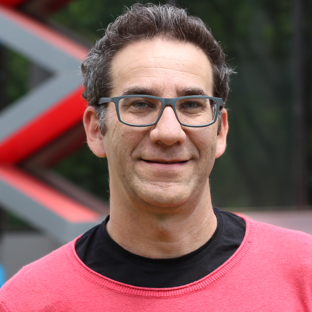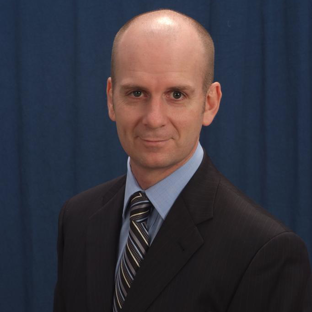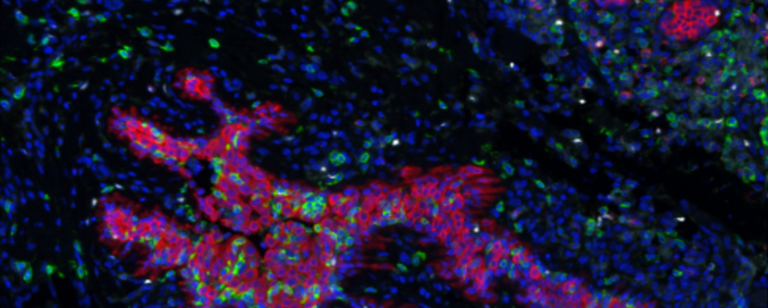In some way or other, cancer will touch most Australians’ lives. In 2017, an estimated 131 people will die from cancer every day in this country. A new case is diagnosed every four minutes. Causes and treatments of the disease are the focus of intensive research, but public understanding of cancer is often clouded by fear and misinformation.
In an attempt to demystify cancer, and to reframe what we know about it, Barking Spider Visual Theatre and La Trobe University have formed a new and unique collaboration that bridges the arts and sciences. They’ve created innovative scientific approaches to cancer, experimenting with live audio recording of cancer cells, and sonifying the interactions between cells – as well as interviewing a range of people affected by it, from clinicians to patients and families.
In this discussion, we’ll look at our growing understanding of cancer and its treatment. We’ll explore advances in immunotherapy as well as the social impact of the disease – delving into scientific research, lived experience and the sound work generated by the artists, followed by an interactive installation.
Presented in partnership with Barking Spider Visual Theatre and La Trobe Institute for Molecular Science, La Trobe University, and supported by the City of Melbourne Arts Grants Program.
Photo: Immune cells (green) communicating with tumour cells (red) in pre-chemotherapy triple negative breast cancer patient. Credit: Natasha Brockwell/Belinda Parker, La Trobe Institute for Molecular Science, La Trobe University.
Featuring

Ranjana Srivastava
Dr Ranjana Srivastava is an oncologist, Fulbright scholar and award-winning author. She is a Walkley Award finalist for her columns on medicine and humanity in the Guardian.
Her honours include the Human Rights Literature Prize and a medal of the Order of Australia for her contribution the field of doctor-patient communication. Her latest book is called A Better Death: Conversations about the Art of Living and Dying Well.

Jonathan Cebon
Jonathan Cebon is the Medical Director of the Cancer Services Unit at the Olivia Newton-John Cancer Wellness and Research Centre at Austin Health in Heidelberg, and Medical Director of the Olivia Newton-John Cancer Research Institute. His clinical area of interest is the immune therapy of cancer.
He is a Professor in Medicine at the University of Melbourne and Fellow of the Royal Australasian College of Physicians. He is a lead investigator in the Victorian Cancer Agency funded Melbourne Melanoma Project. He serves on the Cancer Council of Victoria and has served as a member of the Consultative Council of the Victorian Cancer Agency. He also serves on the Scientific Committee of the Cancer Vaccine Collaborative (CVC), an organisation that plays a major international role supporting basic, translational and clinical research into the immune therapy of cancer.
As a lead investigator for Ludgwig Institute for Cancer Research (LICR) and CVC in Australia for 20 years, he has led more than 20 immunotherapy Phase I and II clinical trials and translational projects with immunotherapeutics.

Patrick Humbert
Patrick Humbert is Professor of Cancer Biology and Co-Head of Cancer Research at La Trobe University.
In 2001, Patrick was awarded a Special Fellowship from the Leukemia and Lymphoma Society of America. He has since been a multiple recipient of Career Development Fellowships, has had continuous federal, national and international funding for his laboratory’s research program, and is currently a Senior Fellow of the National Health and Medical Research Council of Australia. In 2016, Patrick moved his laboratory to the La Trobe Institute of Molecular Sciences (LIMS) at La Trobe University.
After completing a PhD in immunology at the Walter and Eliza Hall Institute, Patrick undertook postdoctoral training at the Massachusetts Institute of Technology (MIT) Cancer Research Centre (USA) where he made seminal contributions to the understanding of tumour growth and proliferation.
In 2000, Patrick returned to the Peter MacCallum Cancer Centre where he set up his own independent research laboratory with a major focus on the study of the genetic control of tissue architecture and how the disorganisation of organs leads to cancer initiation and metastasis.

Mark Shackleton
Mark Shackleton is the Director of Oncology at Alfred Health, a Professor of Oncology at Monash University, a Victorian Cancer Agency Clinical Research Fellow and Chair of the Australian and New Zealand Melanoma Trials Group.
He was awarded the 2006 Victorian Premier’s Award for Medical Research, a 2010 NHMRC Achievement Award, a 2011 Pfizer Australia Fellowship, and in 2012 was awarded the Australian Science Minister’s Prize for Life Scientist of the Year. His laboratory focuses on understanding mechanisms of melanoma initiation and propagation.
After training in medical oncology and at the Ludwig Institute in Melbourne, he undertook PhD studies at the Walter and Eliza Hall Institute of Medical Research, and post-doctoral work at the University of Michigan, USA, with resultant publications in Nature, Cell, Cancer Cell and the New England Journal of Medicine.
